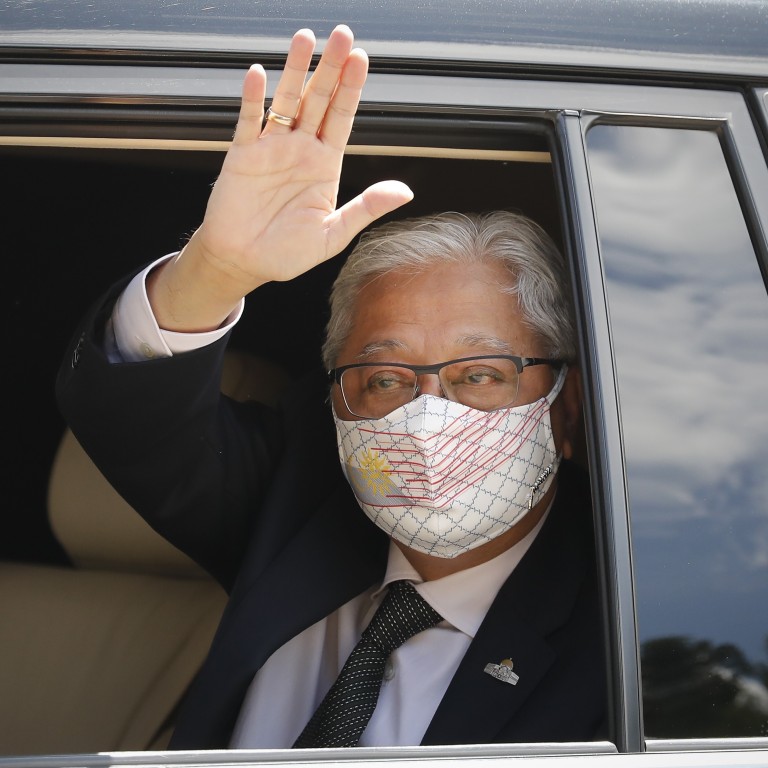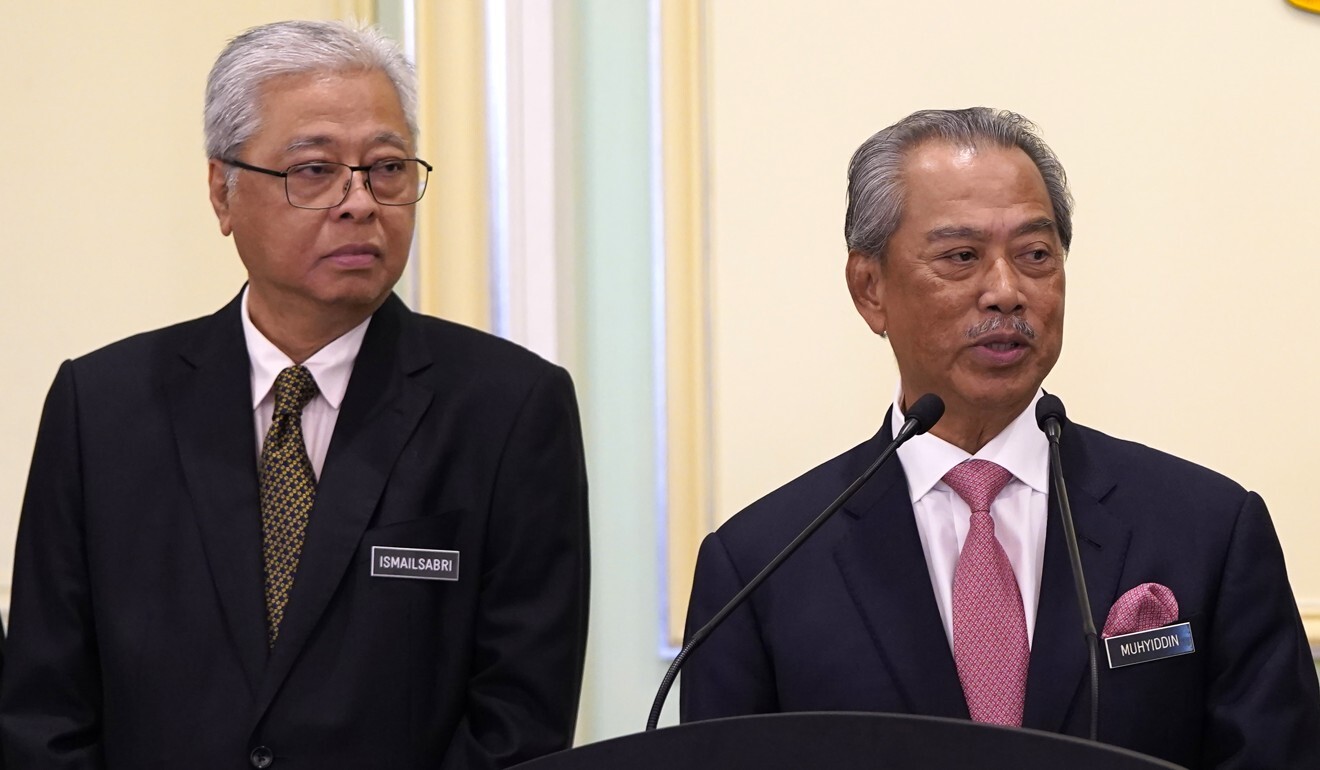
Malaysia’s Umno takes back reins as king picks Ismail Sabri Yaakob as new PM
- The 61-year-old is a three-decade veteran of the United Malays National Organisation and has previously courted controversy for his strident views on Malay ethno-nationalism
- New leader is likely to keep ties with China and the United States on an even keel, experts say
Political observer Oh Ei Sun said the new administration’s main focus would be on getting the Covid-19 situation under control, as the daily caseload once again hit a new record of 23,564 on Friday.
On foreign policy, including towards China and the US, Oh said the new leader was likely to continue maintaining a stance of keeping ties with all major powers on an even keel.
The National Palace said in a statement that Sultan Abdullah Sultan Ahmad Shah chose Ismail Sabri after confirming that the former defence minister had the backing of 114 out of 220 lawmakers – slightly more than a simple majority.
Ismail Sabri will be sworn in on Saturday afternoon in a tradition-steeped ceremony in the National Palace to be presided over by the sultan, who serves as a constitutional head of state.
Malaysia’s political uncertainty has led to an exodus of foreign investors
“His Majesty hopes the appointment of a new prime minister will immediately end the political crisis and that all MPs will put aside their political agenda in order to unite in dealing with the Covid-19 pandemic in the interest of the people and the country,” a palace statement said.
Muhyiddin was forced to resign after 15 out of 38 MPs from Umno that propped up his government pulled out, saying they could no longer tolerate his leadership and being made to play second fiddle in the ruling coalition.
Ismail Sabri, who has been in active politics for 34 years, has the backing of all Umno MPs – except one rebel – as well as all other MPs who previously endorsed Muhyiddin and his Perikatan Nasional alliance.
This bloc is comprised predominantly of Malay-Muslim MPs from groups such as Muhyiddin’s Parti Pribumi Bersatu Malaysia (PPBM) and the hardline Islamic Party of Malaysia (PAS).
The new prime minister was most recently Muhyiddin’s deputy. Before that, he was a senior minister in charge of security affairs.

A lawyer by training, Ismail Sabri has previously led the country’s youth and sports, domestic trade, agriculture and rural and regional development ministries.
Malaysian political commentator Joceline Tan this week dubbed the incoming leader, often mild-mannered in public settings, the “Mr Nice Guy” of Umno.
Nonetheless, he has courted his fair share of controversies owing to his hardline views on Malay ethno-nationalism.
One instance included his comments as domestic trade minister in 2015, following a racially-charged brawl in an electronic products mall consisting mainly of Chinese retailers.
Ismail Sabri suggested that Malay consumers should boycott profiteering Chinese businesses.
Malaysia’s king says next PM must face immediate confidence vote
Campaigning ahead of polls in 2018, meanwhile, he said the Chinese-dominated Democratic Action Party – which seeks a multiracial, “Malaysian Malaysia” – was in fact advocating a form of politics that would eliminate “the special rights of the Malays and bumiputra while discarding the uniqueness of Islam.”
Bumiputra is the term used to describe the country’s majority Malays and other indigenous groups.
Umno back at the helm
Ismail Sabri’s appointment is particularly noteworthy as it marks a turn of fortunes for his party – the country’s oldest and foremost champion of bumiputra rights.
Founded in 1946, Umno governed Malaysia without interruption from 1957 when the country gained independence, until its shock election defeat to the Pakatan Harapan alliance in 2018.
Following Umno’s election loss, several MPs jumped ship to join Muhyiddin’s PPBM and at one point, the Grand Old Party of Malaysia was said to be on the verge of deregistration at the hands of the new Pakatan Harapan government.

Muhyiddin claimed the manoeuvre was necessary given the multiracial Pakatan Harapan’s neglect of Malay interests.
Ismail Sabri’s immediate challenge will be to form a cabinet in the coming days that placates the demands of his new coalition’s various actors.
Muhyiddin on Thursday underscored that he had in effect instructed Perikatan Nasional to back Ismail Sabri. The condition for such approval, he said, was for the new prime minister to ensure that ministers are not tainted by corruption and for the new administration to abide by the constitution. The mention of graft is a veiled reference to the legal troubles of Najib, who remains powerful within Umno.
Can Malaysia’s new prime minister end political instability?
The new prime minister, meanwhile, will also have to address the concerns of the opposition after the king ordered the country’s feuding political factions to ensure that the outcome of the prime ministerial race was not one where the “winner wins all, and the loser loses all”.
The new government can stay in power until the current electoral term ends in July 2023.
Analysts, however, predict that fresh polls will be called some time next year after the Covid-19 situation abates in Malaysia.

